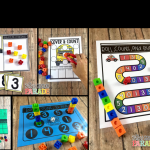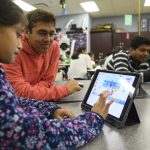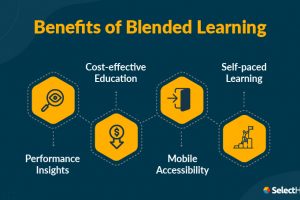
Critical thinking enables students to analyze information, question assumptions, and creatively solve problems. As Aristotle wrote, “It is the mark of an educated mind to be able to entertain a thought without accepting it.” Skilled teachers cultivate this intellectual curiosity across all subjects.
Promoting Inquiry
Effective questioning is foundational to critical thought. Pose open-ended questions without one right answer. Ask “Why do you think that?” and “What evidence supports your reasoning?” to encourage deeper analysis.
Brainstorm and cluster thoughts graphically before writing. Have students first verbalize ideas to partners before composing individual responses. This thinking process leads to sharper insights.
Nurture an inquiry mindset by welcoming questions. Never dismiss student queries as silly or irrelevant. Thank students for their curiosity and dig into each question together.
Teaching Critical Concepts
Directly teach principles that strengthen analytical skills across disciplines:
- Identify claims, compare evidence and assess credibility of sources across media reports.
- Recognize common logical fallacies and persuasive speech techniques used in arguments.
- Compare historical perspectives and separate interpretations from factual accounts.
- Break complex processes into component parts through outlines, flow charts and diagrams.
- Gather and organize information to identify patterns and construct meanings.
These transferable analysis frameworks empower students to think critically in any situation.
Discussion-Based Learning
Lively discourse builds capacity for reasoning and judgment. Set expectations for respectful, evidence-based dialogue.
Play “devil’s advocate” proposing counterviews. Ask “What might someone who disagreed say?” to broaden perspective.
When debates get heated, take a breather and reflect: “How can we build understanding between both sides?” Teach listening as actively as arguing.
Cultivate an intellectually curious environment where ideas flow freely. Students sharpen their thinking through thought-provoking exchanges.
Constructive Feedback
Provide feedback focused on analytical reasoning over right answers. Praise the thinking process:
- “I like how you broke this issue into different facets.”
- “Your evidence supports your claim from multiple angles.”
- “I appreciate you challenging assumptions to explore this deeper.”
Identify any flawed logic while affirming positive critical thinking traits. Instill that intellect matters more than being “right.”
**Authentic Assessments **
Evaluate critical thought through open-ended projects, case study analysis, reflective journals, and creative tasks like:
- Writing a researched argument essay or structured debate
- Investigating a historical event from varied viewpoints
- Formulating hypotheses and designing experiments
- Creating representations like infographics that organize complex information visually
These meaningful assessments demonstrate applied analytical abilities, not just test-taking skills.
Embracing Errors
Missteps are learning opportunities. Unpack flawed reasoning without judgment:
- What led you to this conclusion? Help me understand your thought process.
- Let’s review the facts together. What might we be missing?
- How could we research this further or look at this issue in a new light?
When kids know mistakes fuel growth, they persist through challenges. Turn failures into critical thinking breakthroughs.
Fostering Open-Mindedness
Examine issues from different cultural lenses. Seek diverse primary sources and authentic perspectives:
- How might we view this issue through an immigrant’s eyes?
- Why might this seem just to some people and unjust to others?
- What societal factors and history shape people’s outlooks?
Develop intellectual humility. Our knowledge is limited but our combined understanding grows through open sharing.
Socratic Seminars
In these student-led discussions, participants exchange views about curated texts like TED talks, poems, political speeches or news articles. Set ground rules enforcing constructive dialogue. Have observers take notes. Prompt deeper analysis by asking students to paraphrase each other’s arguments. These seminars exercise collaborative critical thinking.
Practicing Across Disciplines
Foster transferable thinking routines in all subjects:
- English: Analyze language, characterize narrators, check claims against evidence in texts
- History: Question accounts, judge credibility of sources, interpret motivations
- Science: Research hypotheses, design controlled experiments, assess data objectively
- Math: Justify solutions, find patterns, consider cases that disprove assumptions
- Arts: Interpret symbolism, examine technique, judge aesthetic quality
Critical skills must stretch beyond ELA. Weave analysis into daily lessons.
Great teachers spark the life-long journey toward intellectual growth. With guidance, students gain confidence to think independently, stand up for truth, and brighten the world with their ideas.
















